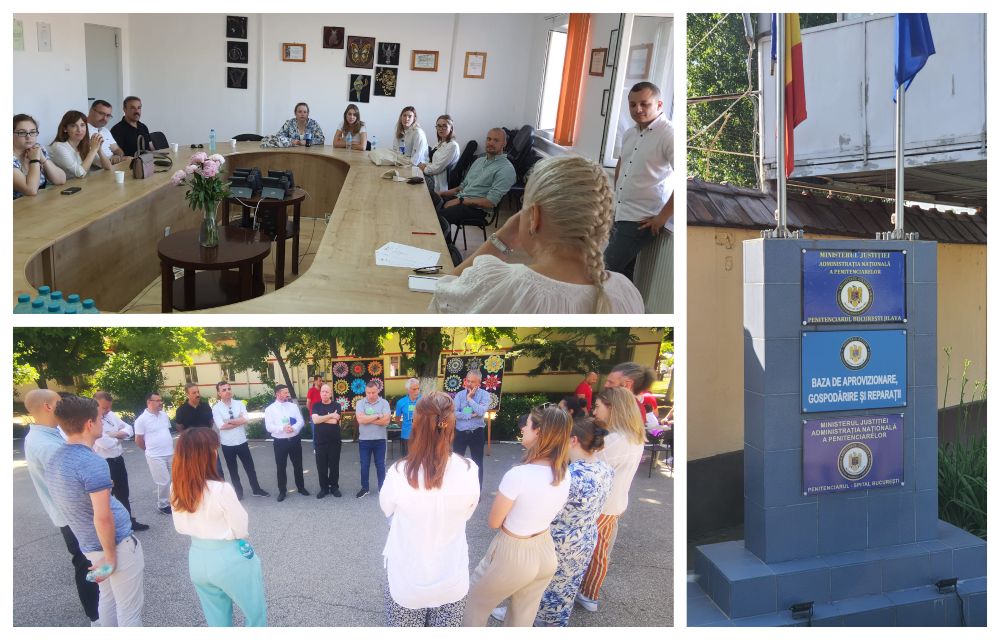Upon completing their sentence, most inmates face significant social adaptation issues such as stigmatisation or ostracism from family and society. It is also common to have a hard time finding a job or even housing.
This marginalisation is partly due to the lack of the social skills and competencies that allow most people to function productively in society.
Without proper material, psychological and social support, offenders tend to fall back into the reoffending cycle, contributing to the prevailing recidivism rates.
Throughcare within the criminal system
The maintenance of family ties, the ability to keep up with social changes, and the guarantee of knowledge are crucial to living under social rules. General research has proven that ex-inmates who can secure a job, manage social ties, and maintain social interactions are less likely to recidivate.
BLEEP’s offer toward socialisation and knowledge
The Blended Learning Environment for European Prisoners (BLEEP) project promotes digital inclusion in its broadest sense. The project has created and implemented an innovative, creative, Europe-focused blended learning platform for all (ex)inmates. To develop this programme, the project partners sought to answer the inmate’s most needed skills. Moreover, it was important to make the platform accessible inside and outside the prison grounds.
The individuals can determine their learning process, providing the inmates with a tool that can be monitored while stimulating progress in developing skills. The BLEEP project also contributes to the facilitators’ professional development by supporting the reintegration of inmates into society before their release from prison.
To discuss the programme implementation, the BLEEP consortium gathered at Bucharest-Jilava prison, in Romania at the beginning of June 2022.

The event coincided with the Children’s Day event at the prison, which allowed 60 inmates to celebrate this national holiday with their offspring. Taking advantage of the presence of Romanian justice and senior prison officials at the event, the BLEEP project partners shared the initiative’s results in a Multiplier Event at the ceremony ground.
Know more about this project

BLEEP
Blended Learning Environment for European Prisoners
The BLEEP activities in Romania have been organised by Kocaeli Open Correctional Institution, a project partner from Turkey. All the other members of the project consortium took part in the events, including project promoter CLICK F1 (Netherlands), IPS_Innovative Prison Systems (Portugal), CHAINS (Netherlands), Direção Geral da Reinserção e dos Serviços Prisionais (Portugal), STEPS (Italy), Stichting Exodus Zuid-Holland (Netherlands), European Prison Education Association (Netherlands), and the Bucharest-Jilava Penitentiary (Romania).
For more information on the BLEEP project, please visit its webpage.
Related projects

VR4React
Reducing Reactive Aggression through Virtual Reality

VR4DRUG Rehab
Developing and Using Virtual Reality Technology for the Rehabilitation of Drug Users in Probation Services

VISION
Visualising the Future Through Training

ViRTI
Virtual reality for training inmates

Turning Blue
Integrating Young Offenders Through the Blue Economy

TRIANGLE
Secured digital education system for vocational skills for youngsters in closed institutions

TRAIVR
Training of Refugee Offenders by Virtual Reality

STEP2LAB
Systematic Transition from Prison into the Labour Market

SPORT4PRISONS
New sports method for prisons as a tool to support competency development, positive values, and reintegration

RE[ENTER]
Strengthening the capacity of criminal justice professionals and volunteers
Related news

Enhancing child-friendly juvenile correctional training across Europe: IPS presents key findings at CRS 2025
Read More »
Building pathways to crime prevention through Community Policing and Rehabilitative Justice
Read More »
New technical guide launched to support Prison Services in procuring Offender Management Systems
Read More »
Strengthening integration across Europe: Collaborative efforts to support refugee inclusion and radicalisation prevention
Read More »




